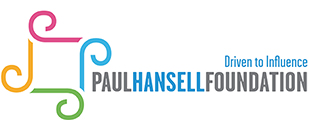December 7, 2010 is a day I will ne ver forget, though its not so much a memory as it is this vivid video I’m trapped in as it plays back in my mind. The phone rang. Matt answered it. Looking scared and confused, he passed the phone to me saying, “It’s your mom,” and I felt my stomach drop. My mom didn’t even say hello, all she said was, “Jolene, you need to come home.” I knew something terrible had happened. And then, those two words that caused more pai n than anything I had ever felt in my entire life, “It’s Paul.”
ver forget, though its not so much a memory as it is this vivid video I’m trapped in as it plays back in my mind. The phone rang. Matt answered it. Looking scared and confused, he passed the phone to me saying, “It’s your mom,” and I felt my stomach drop. My mom didn’t even say hello, all she said was, “Jolene, you need to come home.” I knew something terrible had happened. And then, those two words that caused more pai n than anything I had ever felt in my entire life, “It’s Paul.”
Paul was my brother, the only sibling I had, who at eighteen committed suicide.
At the time, Paul was an undergraduate student at Brock University studying business. He wanted to be an accountant. While we fought like most siblings do, my brother was one of my best friends—the only person who really knew me. I couldn’t believe I was living in a world where Paul no longer existed.
In the days, and weeks, and months following my brother’s death, one of the most difficult things for me to deal with was the stigma of suicide and mental health issues. People told me my brother was selfish for ending his own life, and whispers circulated about how kid from such a good family could choose to end his own life.
I didn’t want to be known as ‘the girl whose brother committed suicide,’ and it was until years afterwards that I started to realize why. The sticking point for me is on the verbage: “committed suicide.” People commit theft, commit treason, commit murder, commit adultery—all things this that society has deemed inappropriate, and which have even been criminalized by law. The word ‘committed’ in front of the word ‘suicide’ then naturally perpetuates the stigma that suicide is bad, and someone who committed suicide is a bad person.
By brother was NOT a b ad person; he was my best friend—my partner in crime, my study buddy, my rock when things got rough. I’m not ashamed that he took his own life, but I am frustrated with the stigma of suicide that continues to persist.
ad person; he was my best friend—my partner in crime, my study buddy, my rock when things got rough. I’m not ashamed that he took his own life, but I am frustrated with the stigma of suicide that continues to persist.
This year the theme of the United Nations International Youth Day is Mental Health Matters. Over 280 million youth around the world suffer from a mental health condition, but only one out of every five will receive the help and support they need. For many of these youth, the stigma attached with mental health is a major fact in their decision to ask for help and received treatment. I know it was a reason for my brother.
So how do we break the stigma to increase youth access to mental health programs? Promotion and awareness are definitely important, but it starts with the words we use. The continued marriage of ‘committed’ and ‘suicide’ will only continue to mitigate progress in breaking the stigma. Words matter. And to break the stigma, we need to change the words.







This is an awesome post. Thank you for sharing your words. Incredibly brave and kudos to you for spreading this positive message so others struggling can get the help they need. Rock on 🙂
-Ned
ned@tangerinepromotions.com